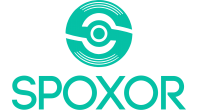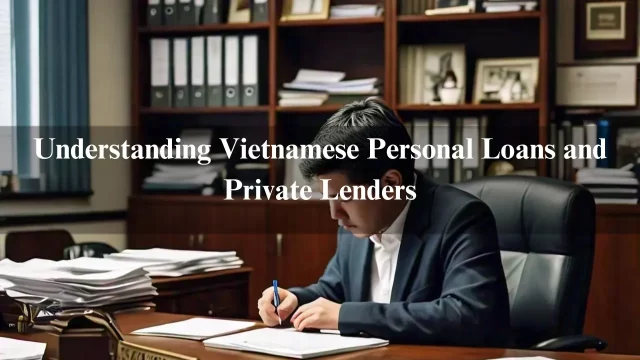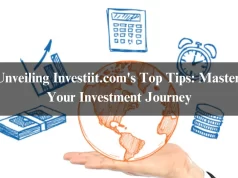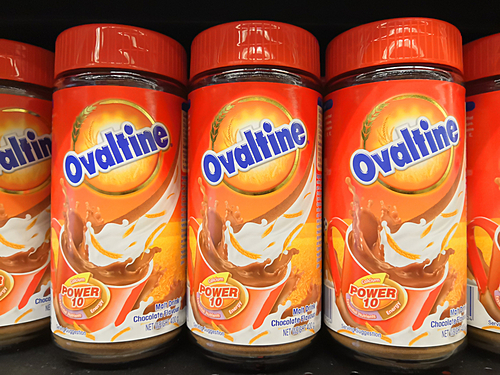Navigating the world of finance can be daunting, especially when understanding Vietnamese Personal Loans and Private Lenders. With a growing economy and an increasing number of private lenders, many people seek flexible solutions for their financial needs. Whether you’re looking to fund education, cover unexpected expenses, or start a business venture, Vietnamese personal loans can support you.
But what exactly do these loans entail? How do private lenders operate in this vibrant market? The answers may surprise you. Let’s dive deep into the essentials of Vietnamese personal loans and uncover everything there is to know about working with private lenders in Vietnam. Your journey toward informed borrowing starts here!
Table of Contents
Overview of Vietnamese Personal Loans
Vietnamese personal loans are designed to give individuals quick access to funds for various purposes. They range from small amounts for everyday needs to more considerable sums for significant investments, such as home renovations or education.
These loans typically do not require extensive documentation, making them an attractive option for many borrowers. The application process is often streamlined, allowing applicants to receive approval and funding quickly.
Interest rates on personal loans can vary widely depending on the lender and borrower’s creditworthiness. It’s essential to shop around and compare offers before committing.
Borrowers may find both secured and unsecured options available in the market. Secured loans generally offer lower interest rates in exchange for collateral, while unsecured loans provide more flexibility but usually come at a higher cost. Understanding these distinctions is crucial when considering your financial choices.
Different Types of Private Lenders in Vietnam
In Vietnam, private lenders come in various forms. Each type caters to specific needs and borrower profiles.
First, some individual lenders often operate within local communities. They may offer informal loans with flexible terms but can also charge high interest rates.
Next, we have microfinance institutions (MFIs). These organizations focus on providing small loans to individuals or businesses that traditional banks overlook. MFIs aim to uplift low-income borrowers while promoting financial inclusion.
Peer-to-peer lending platforms are another option that is gaining traction. These online services connect borrowers directly with investors willing to fund their loans, usually at competitive rates.
Some companies specialize in consumer lending for personal expenses like education or medical bills. Their processes are streamlined and quick, but watch out for hidden fees.
Understanding these categories helps borrowers make informed choices when seeking Vietnamese personal loans and private lenders.
The Process of Applying for a Personal Loan from a Private Lender
Applying for a personal loan from a private lender in Vietnam is often straightforward. Start by gathering your financial documents. This may include proof of income, identification, and any existing debts.
Next, research potential lenders. Each lender has different terms and conditions. Compare interest rates, repayment periods, and fees to find the best fit for you.
Once you’ve selected a lender, complete the application form accurately. Be prepared to provide detailed information about your finances and the purpose of the loan.
After submitting your application, wait for approval. Private lenders typically have faster processing times than traditional banks. If approved, review the contract carefully before signing.
Once everything is in place, funds are quickly transferred into your account. Communication with your lender throughout this process can make it smoother and less stressful.
Pros and Cons of Borrowing from Private Lenders
Borrowing from private lenders can be a mixed bag. On one hand, the approval process is often faster than that of traditional banks. On the other hand, many private lenders offer flexible terms tailored to your needs.
However, this convenience comes at a price. Interest rates may be significantly higher than those of banks or credit unions. If not managed wisely, this could lead to overwhelming debt.
Another consideration is the risk of predatory lending practices. Some less reputable lenders might impose hidden fees or unfair conditions that trap borrowers in difficult situations.
Conversely, private lenders are more likely to work with those with poor credit scores. They may look beyond your credit history and focus on factors like income stability.
Understanding these aspects can help you make informed choices about whether borrowing from a private lender is best for your financial situation.
Tips for Choosing the Right Private Lender
When searching for the right private lender, start by researching their reputation. Look for reviews and testimonials from previous borrowers. A lender with positive feedback is usually a good sign.
Next, consider the interest rates they offer. Compare these rates across different lenders to find competitive options. Remember, even slight differences can significantly impact your repayment amount.
Transparency is also crucial. Ensure that the lender clearly outlines all terms and conditions before you commit. Hidden fees or vague language can lead to unexpected costs down the road.
Don’t forget to evaluate customer service quality, too. Reliable communication makes navigating any loan process much more manageable.
Check if they are licensed and regulated by local authorities. This adds a layer of security for your borrowing experience and peace of mind during your financial journey.
Common Misconceptions about Vietnamese Personal Loans and Private Lenders
Many people hold misconceptions about Vietnamese personal loans and private lenders. One common myth is that all private lenders are unregulated and exploitative. While some may operate outside the law, many reputable lenders adhere to regulations.
Another misconception is that applying for a personal loan with a private lender is always risky. Several lenders offer competitive rates and transparent terms, making borrowing safer than perceived.
Some believe that only those with excellent credit can qualify for loans from these sources. However, many private lenders consider alternative criteria, providing options for individuals with varied financial backgrounds.
There’s a belief that personal loans from private lenders come with hidden fees. While reading the fine print carefully is essential, many trustworthy lenders provide clear information upfront without unexpected costs lurking in the shadows.
Conclusion
Understanding the landscape of Vietnamese personal loans and private lenders is crucial for anyone seeking financial assistance. The variety of options available can be overwhelming, but with the proper knowledge, you can navigate this terrain effectively. Whether you’re considering a loan to manage an unexpected expense or to invest in your future, knowing what types of lenders are out there will help you make informed choices.
Being aware of the process makes applying for a loan from private lenders smoother and less stressful. It’s also essential to weigh the pros and cons carefully; while these loans can offer quick access to funds, they may come with higher interest rates or stricter repayment terms. Choosing the right lender can make all the difference—do thorough research and compare offers before making a commitment.
Common misconceptions about Vietnamese personal loans often lead borrowers astray. Challenging those myths is important by seeking accurate information from credible sources. With proper understanding and preparation, you’ll be better equipped to secure financing that meets your needs without falling into common traps.
Empowering yourself with knowledge about Vietnamese personal loans and private lenders enables you to take control of your finances confidently. By following best practices in lending decisions, you’ll find solutions tailored just for you.
FAQs
- What are Vietnamese personal loans?
Loans provide quick funds for various needs, such as education or business, which can be secured or unsecured.
- How do private lenders operate in Vietnam?
They offer flexible loan terms and faster approvals, with varying interest rates and conditions.
- What is the application process for a personal loan from a private lender?
Gather documents, compare lenders, apply with accurate info, and review the contract upon approval.
- What are the pros and cons of borrowing from private lenders?
Pros: Faster approval, flexible terms.
Cons: Higher interest rates and potential hidden fees.
- How can I choose the right private lender in Vietnam?
Research reputation, compare rates, ensure transparency, and check for proper licensing.
- Are all private lenders in Vietnam unregulated or exploitative?
No, many reputable lenders follow regulations and offer fair terms.
- Can I qualify for a personal loan from a private lender if I have poor credit?
Yes, many lenders consider other factors beyond the credit score.
- Are there hidden fees associated with personal loans from private lenders?
Some may have hidden fees, so read the terms carefully and ask about additional costs.







